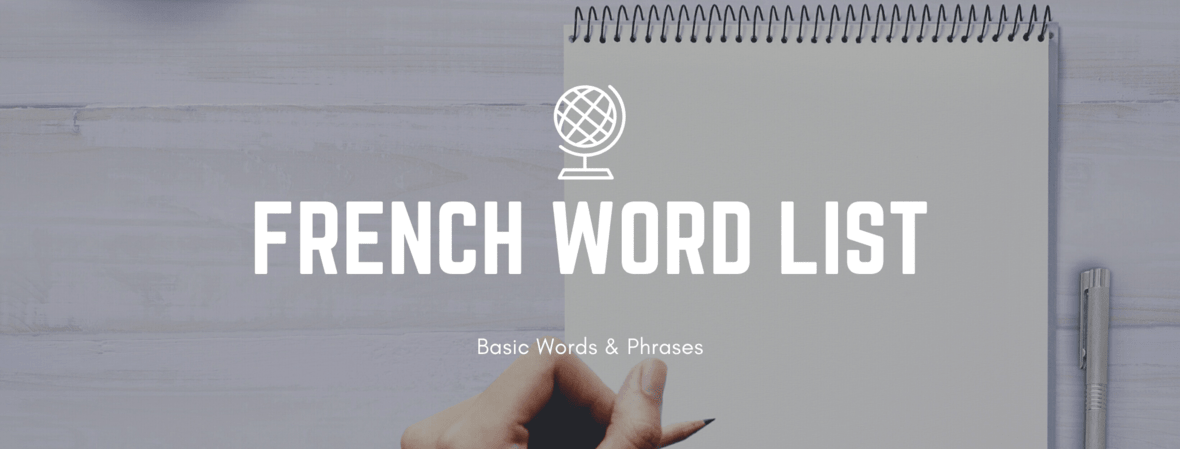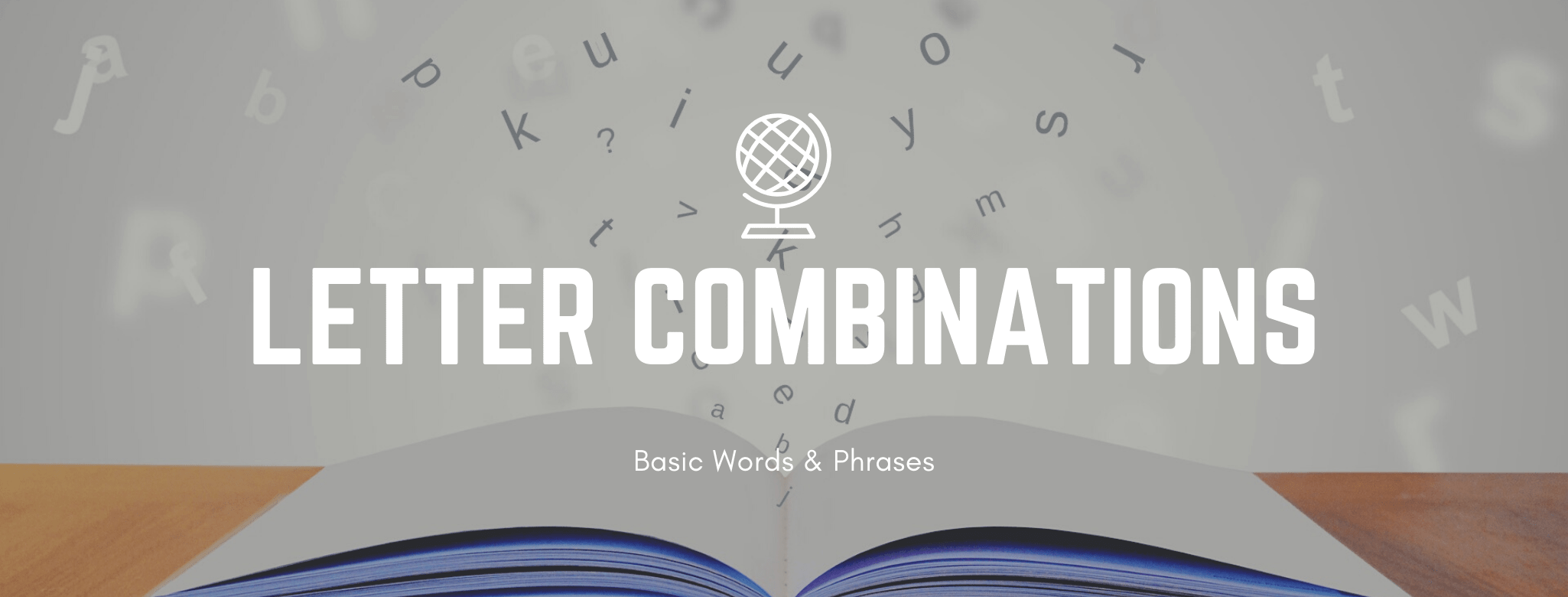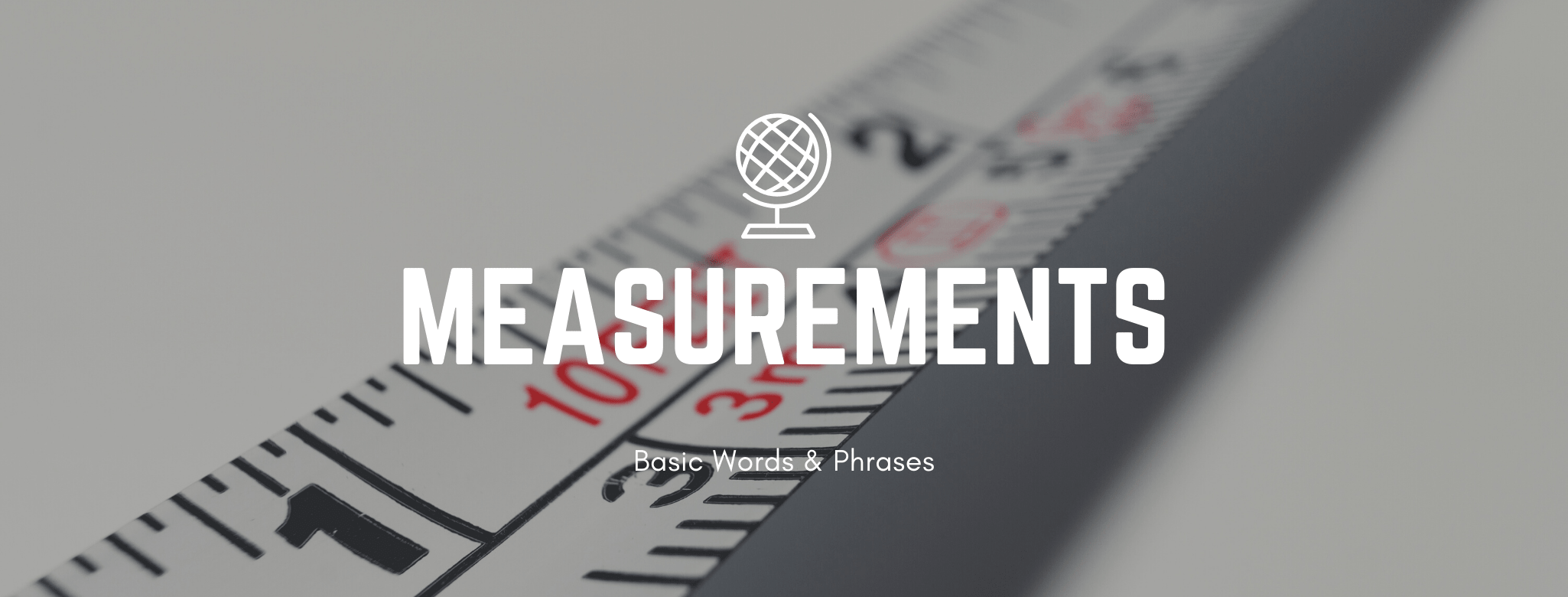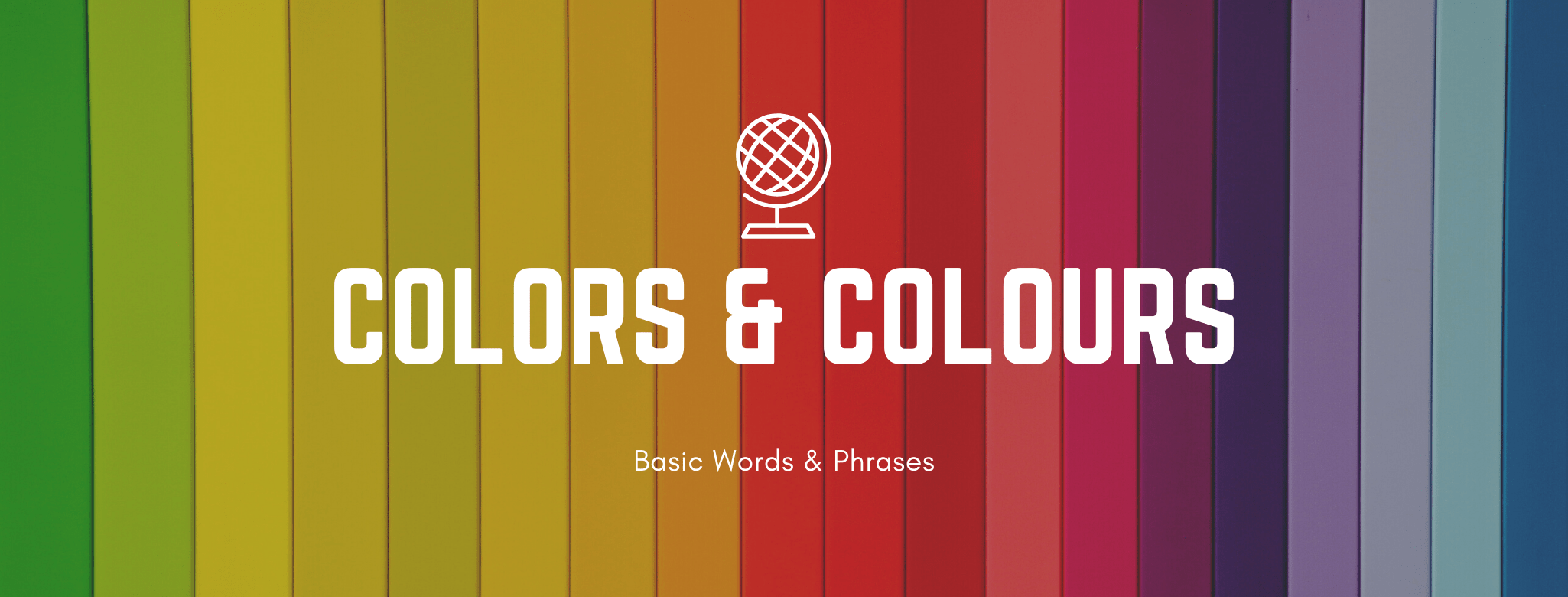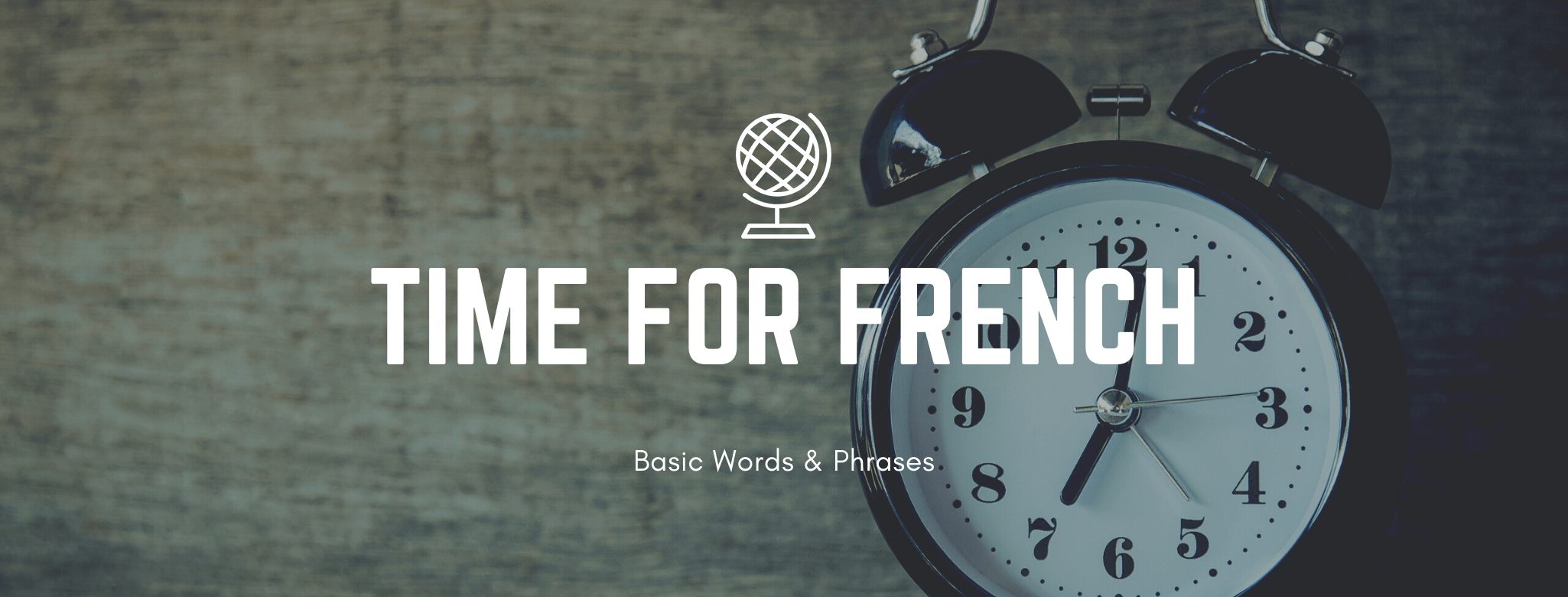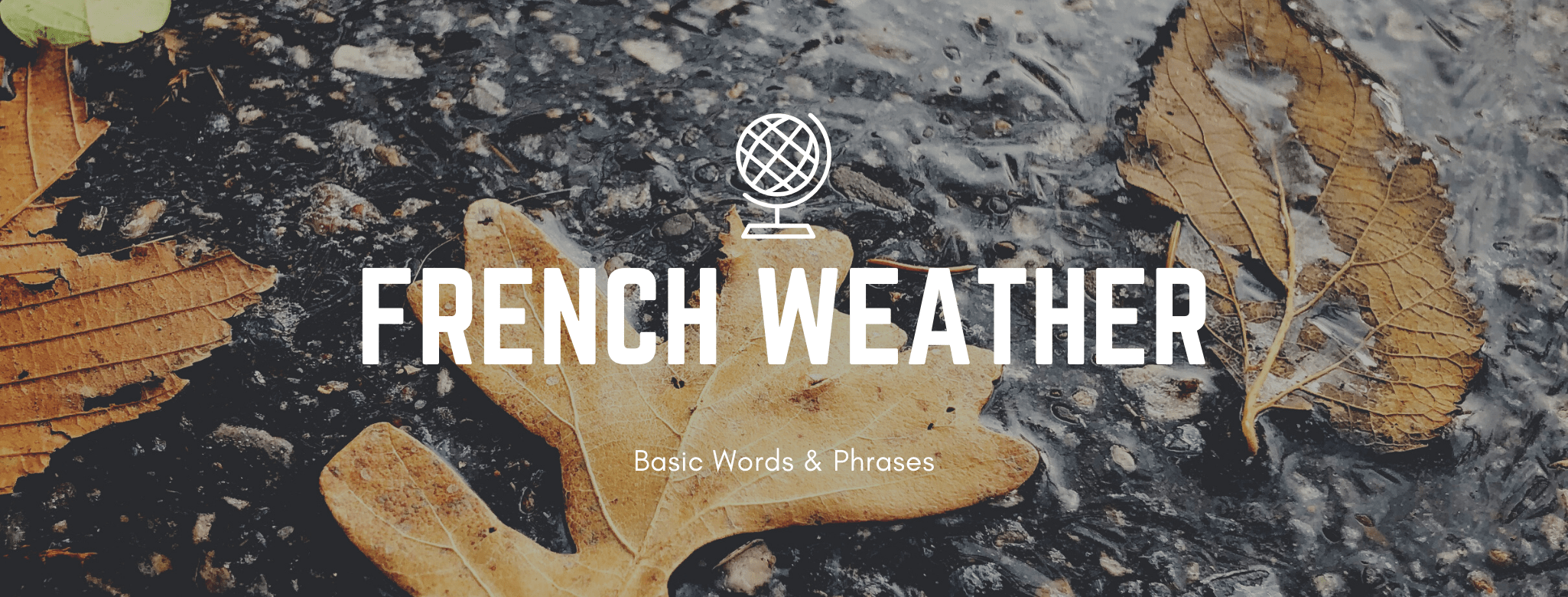You may know that all French nouns are either masculine or feminine, but did you know that some nouns can be both? A word like après-midi (afternoon), for example, can be either masculine or feminine depending on the speaker’s preference:
Vous deux, là, qu’est-ce que vous allez faire de beau cet après-midi?
You two, here, what are you going to do that’s exciting this afternoon?
Caption 57, Actus Quartier — Fête de quartier Python-Duvernois — Part 1
Play Caption
On passe une super après-midi.
You spend a great afternoon.
Caption 90, LCM — Rétine argentique, le paradis des photographes
Play Caption
Un après-midi (masculine) and une après-midi (feminine) both mean «an afternoon.» But usually, when a word’s gender changes, its meaning changes too. Take the word mode, for example. La mode (feminine) means «fashion,» but le mode (masculine) means «mode» or «(grammatical) mood»:
Le milieu de la mode est aussi touché hein, forcément.
The world of fashion is also affected, you know, necessarily.
Caption 36, Cap 24 Paris — Alessandro fait les Puces! — Part 1
Play Caption
Le temps présent fait partie du mode indicatif.
The present tense is part of the indicative mood.
Caption 10, Le saviez-vous? — Le mode indicatif, c’est quoi?
Play Caption
Like mode, a lot of dual-gender words end in -e. Another common one is poste. When masculine, it means «post» as in «position» or «job» (among other things), and when feminine, it means «post» as in «post office» or «mail»:
J’ai trouvé mon premier poste de libraire
I found my first bookseller position
Caption 3, Gaëlle — Librairie «Livres in Room»
Play Caption
Si je venais à gagner, vous m’enverrez mon chèque par la poste.
If I were to win, you’ll send me my check in the mail.
Caption 27, Patricia — Pas de crédit dans le monde des clones — Part 2
Play Caption
You’ll most often find the word livre in its masculine form, meaning «book.» When feminine, it means «pound,» as in the unit of weight and currency:
L’extérieur d’un livre s’appelle la couverture.
The outside of a book is called the cover.
Caption 4, Manon et Clémentine — Vocabulaire du livre
Play Caption
Une livre équivaut à environ quatre cent cinquante-quatre grammes.
One pound is equal to around four hundred fifty-four grams.
Voile has related meanings in both its masculine and feminine forms. Both refer to things made of fabric—a veil (un voile) and a sail (une voile):
Un niqab, c’est donc un voile intégral qui ne laisse, euh, voir que les yeux.
So a niqab is a full-length veil that only, uh, shows the eyes.
Caption 10, Cap Caen Normandie TV — Danse — Héla Fattoumi se dévoile
Play Caption
Il a une seule voile.
It has a single sail.
Caption 11, Fred et Miami Catamarans — Les Bateaux
Play Caption
This video takes you on a tour (un tour) of Paris, making a requisite stop at the Eiffel Tower (la Tour Eiffel):
La Tour Eiffel, qui est le symbole de la France.
The Eiffel Tower, which is the symbol of France.
Caption 20, Paris Tour — Visite guidée de Paris
Play Caption
Gender can be tricky in French, doubly so when you’re dealing with words that can be both masculine and feminine. Remembering them is just a matter of practice. You can find a comprehensive list of dual-gender words on this page.
Beginning French Lessons
Self-study checklist:
Lawless French for Beginners
Advent Calendar
A tiny French challenge every day until Christmas — translate each seasonal term to open a door.
Airport
If there’s anything worse than having to spend time at the airport, it’s having to spend time at the airport when you don’t speak the local language. Sure, most airport employees speak another language or two, but you’ll still be better off if you have these key French words and phrases in your pocket. Bon voyage !
Body
Knowing the parts of the body can come in handy when playing sports, clothes shopping, seeing the doctor, and more. Learn how to talk about your body in French, from head to toe.
Calendar
Knowing the days of the week, months of the year, and seasons will come in handy when traveling, making plans with friends, talking about history, and lots more.
Clothing
Learn the French words for clothing so that you can dress yourself in French. Click any underlined word or phrase to hear it pronounced.
Colors
What do buying clothes, talking about art, and shopping for fruits and vegetables have in common? Color! If you want to make sure to buy red tomatoes and critique an artist’s use of green, you’ll need to know the French colors.
Dates

Descriptions
Setting up an online dating profile, talking to friends about someone you met, bragging about a new baby, and telling the police about a suspect have one thing in common: physical descriptions. Learn all the French vocabulary you need to describe the most common physical characteristics.
Directions
Learn how to ask for directions and understand the answers with this list of French vocabulary.
Dishes and Silverware
When it’s your turn to set the table, you definitely need to know the difference between une assiette and une serviette. Check out this lesson to learn the French names for a variety of dishes, silverware, and pots and pans.
Drinks
Thirsty? Learn French vocabulary related to drinking and drinks, everything from from water to wine.
Essential French
Knowing just a few key words and phrases can be very helpful in your French classes, while traveling in France, and everywhere in between.
Family
Learn how to talk about your entire family in French, including step-family, family-in-law, adoptive family, and more.
Feelings
How are you feeling? Find out how to ask and answer this question in French.
Food
Food is a necessity, and can also be a source of great pleasure. Being able to talk about French food will come in handy while shopping, dining, traveling, and entertaining friends, so check out this lesson about French food, including the basic food groups and related vocabulary. Bon appétit !
French Class Phrases
The best way to encourage students to speak French in the classroom is to make sure that they know how to say all the things that they need to say. Once you teach them these useful words and phrases, your students should be able to avoid speaking English during any normal classroom interaction.
Greetings
Learn how to greet people in French, at any time of day or night.
Hanukkah Menorah
A tiny French challenge every day of Hanukkah — translate each seasonal term to light the candle.
Home and Furniture
Home is where the heart is — not to mention the refrigerator, computer, and bed. Learn French vocabulary related to your home and furniture.
How are you? Fine.
Before you dive into a conversation, it’s nice to exchange a few pleasantries. Greetings are first, of course, and then if you know the person, it’s typical to ask how they are.
Introductions
Learn how to introduce yourself and others with this lesson and sound files.
Languages
Parlez-vous français ? What about another language? Here’s how to say the most commonly spoken and studied languages in French, plus a few more for good measure.
LingQ
Learn and practice French vocabulary and listening at any level with LingQ, an online learning system and language community.
Most Common French Words
Start learning French or just satisfy your curiosity with this list of the most common French words, with links to detailed lessons.
Mot du jour
Lawless French offers two different types of mots du jour: one is very basic and free, the other is more detailed and requires a nominal monthly fee.
Nationalities
Every country and continent has an adjective that can be used to describe people and things from that place. Those same adjectives can also be used as nouns to refer to people from that place, with one small change in French.
Numbers and Counting
Learn the French numbers and how to count from 0 to 59 in French.
Numbers and Counting: 100 and up
Learn the big French numbers: hundreds, thousands, millions, billions, and trillions.
Numbers and Counting: 60 to 99
Learn the French numbers and how to count from 60 to 99.
Office
Whether you commute to a traditional 9 to 5 desk job or work at home with a computer and a cat on your lap, this French vocabulary will help you set up, navigate, and talk about your office.
Parting Words
Every hello eventually leads to a good-bye. Here’s how to say good-bye at any time of day as well as mention when you’ll meet again.
Personality
Beauty may be in the eye of the beholder, but friendliness is in the heart and kindness is in the soul. Check out this French vocabulary to learn how to describe someone’s personality.
Politeness
After bonjour, polite phrases like «please» and «thank you» are the most important French vocabulary you’ll ever learn. When you visit France, knowing just these few phrases will go a long way, even if the very next thing you say is Parlez-vous anglais ?
Professions
Put your French to work by learning the French names for various crafts and trades.
Restaurant
If you like eating out, you’ll love this French vocabulary related to restaurants.
School
When it’s time for school, students and teachers will be glad to know this French vocabulary.
Shopping
Learn some useful phrases related to shopping in French, including what’s your size, how much does it cost, and I’m just looking, thanks.
Shops and Businesses
Unless you have a personal assistant, running errands is an unavoidable part of life. Food needs to be purchased, clothing washed, and money moved around on a regular basis. Here are the French names for the shops and
robbers
businesses that provide essential supplies and services.
Telling Time

Toiletries and Cosmetics
Time to get ready! Do you know the French terms for toiletries, cosmetics, and the reflexive verbs that go with them? Check out this vocabulary list with sound files.
Train
Taking the train can be an excellent way to explore the country, so here’s the French vocabulary you need to navigate the station, buy tickets, and arrive safely at your destination. Bon voyage !
Transportation
Trains, planes, and automobiles … and buses and shuttles and, well, just take a look at this list of French vocabulary related to transportation.
Weather
Understanding French weather terms is useful for deciding what to wear, planning what to do, and, of course, making small talk.
Weights and Measures
Like most of the world, the French use the metric system for weights and measures. Here are the main units as well as a converter so you can find out the Imperial equivalents.
More Lawless French
Subscribe to my twice-weekly newsletter:
Questions about French?
Visit the Progress with Lawless French Q+A forum to get help from native French speakers and fellow learners.
Learn the basic Greeting words in French. If you want to start with something really simple or if you just want to to be speaking some basic French words to be polite with the French people on your journey to a French speaking country, then this lesson is for you.
| French | English |
| 1. Salut http://simple-french.com/wp-content/uploads/2015/11/je_suis_desole-02.mp3 |
Hello |
| 2. Bonjour http://simple-french.com/wp-content/uploads/2015/11/je_suis_desole-03.mp3 | Good morning |
| 3. Bonsoir http://simple-french.com/wp-content/uploads/2015/11/je_suis_desole-04.mp3 | Good evening |
| 4. Au revoir http://simple-french.com/wp-content/uploads/2015/11/je_suis_desole-05.mp3 | Goodbye |
| 5. à bientôt http://simple-french.com/wp-content/uploads/2015/11/je_suis_desole-06.mp3 | See you soon |
| 6. à plus tard http://simple-french.com/wp-content/uploads/2015/11/je_suis_desole-07.mp3 | See you later |
| 7. à demain http://simple-french.com/wp-content/uploads/2015/11/je_suis_desole-08.mp3 | See you tomorrow |
| 8. Bonne journée http://simple-french.com/wp-content/uploads/2015/11/je_suis_desole-09.mp3 | Have a nice day |
| 9. Bon après-midi http://simple-french.com/wp-content/uploads/2015/11/je_suis_desole-10.mp3 | Enjoy your afternoon |
| 10. Bonne soirée http://simple-french.com/wp-content/uploads/2015/11/je_suis_desole-12.mp3 | Have a nice evening |
| 11. Bonne nuit http://simple-french.com/wp-content/uploads/2015/11/je_suis_desole-13.mp3 | Good night |
2. Notes
What you should know about the French and their language is that in general the French are really polite. Whatever has been said about people from Paris (which is another subject), politeness is ubiquitous in France. While dealing with the locals, you will hear a lot of “merci”, “excusez-moi”, and “s’il-vous-plaît”. It is perfectly normal to say “Bonjour” to complete strangers, the people you are just passing by while walking alone on the street. No one will think you are strange or crazy. It is perfectly normal here!

3. Exercises
[su_spoiler title=”Click to show the explanation of the exercise”]
[content id=”439″]
[/su_spoiler]
[xyz-ihs snippet=”french-basic-phrases”]
4. Homework
- Read all the words aloud 5 times. Read the words slowly, exaggerating the sounds with each word. Make a short break (5 seconds) after each reading.
- Learn the words by heart. (You need to hit 100 % in the translation exercise above without any help)
- Imagine in what situations you could use these words.
Do you know how many words there are in the French language? Come on, have a guess.
Most French dictionaries list around 60,000. But Le Grand Robert, one of the most prominent resources, gathers more than 100,000 words for a total of 350,000 different meanings.
Sounds overwhelming? Keep in mind that even native French speakers know merely a fraction of that! To start having basic conversations, you only need a few hundred basic French words for beginners.
Further down the line, you’ll be considered “proficient” in French upon reaching around 5,000 words. That’s only about 5% of the whole collection.
But let’s not get ahead of ourselves! In this article, we’ll list all of the French beginner words that will allow you to handle many everyday situations, whether you want to talk, listen, or both.
You only need a few words to start a conversation and make friends.
Table of Contents
- Pronouns
- Verbs
- Numbers
- Nouns
- Conjunctions
- Adjectives
- Adverbs
- Le mot de la fin
1. Pronouns
Let’s start our list of beginner French words with the most useful pronouns you should learn as you begin your studies.
At first, all you’re gonna need are the personal subject pronouns (“she,” “you,” “we,” and so on). As you move forward, you’ll quickly add some more to your arsenal.
- → To learn all about this topic, from the general rules to the 10 main categories of French pronouns, make sure to visit our complete guide on FrenchPod101.com.
1 – Personal Subject Pronouns
Personal subject pronouns replace the subject of a sentence.
- Sophie parle français. (“Sophie speaks French.”)
- Elle parle français. (“She speaks French.”)
| Person | French pronoun | English |
| 1st person sg. | je, j’ | I |
| 2nd person sg. | tu / vous | you (casual / formal) |
| 3rd person sg. | il, elle, on | he, she, one |
| 1st person pl. | on / nous | we (casual / formal) |
| 2nd person pl. | vous | you |
| 3rd person pl. | Ils, elles | they |
2 – Impersonal Pronouns
When a sentence doesn’t have a clear subject, let’s stay vague and impersonal:
ça, ce, c’ (“it”)
- Ça fait mal. (“It hurts.”)
- Ce n’est pas vrai. (“It is not true.”)
- C’est important. (“It is important.”)
il (“it”)
- Il est temps. (“It’s time.”)
- Il pleut. (“It’s raining.”)
3 – Reflexive Pronouns
Reflexive pronouns are used with reflexive verbs. For example:
- se lever (“to stand up”)
- se promener (“to stroll”)
- s’habiller (“to get dressed”)
| Person | French pronoun | Example |
| 1st person sg. | me, m’ | Je me lève. (“I stand up.”) |
| 2nd person sg. | te, t’ | Tu te lèves. (“You stand up.”) |
| 3rd person sg. | se, s’ | Elle s’habille. (“She gets dressed.”) |
| 1st person pl. | nous | Nous nous préparons. (“We’re getting ready.”) |
| 2nd person pl. | vous | Vous vous rasez. (“You shave.”) |
| 3rd person pl. | se | Ils se promènent. (“They are strolling.”) |
4 – Interrogative Pronouns
- Qui ? (“Who?”)
Qui est là ? (“Who’s there?”)
- Où ? (“Where?”)
Où es-tu ? (“Where are you?”) - Quand ? (“When?”)
On commence quand ? (“When do we start?”)
- Quoi ? (“What?”)
On fait quoi ce soir ? (“What are we doing tonight?”)
- Pourquoi ? (“Why?”)
Pourquoi tu ris ? (“Why are you laughing?”)
5 – Indefinite Pronouns
- tout (“everything”)
- rien (“nothing”)
- quelque chose (“something”)
- tout le monde (“everybody”)
- personne (“nobody”)
- quelqu’un (“somebody”)
Elle se réveille. (“She wakes up.”)
2. Verbs
Here’s a list of the 50 most useful French verbs for beginners. Of course, depending on whether you’re studying, visiting, or working in France, you might have different needs. But this is a good place to start in any case!
- → For all the information you’ll need on regular verb groups (-ER and -IR), irregular verbs, and reflexive verbs, be sure to have a look at our full article on FrenchPod101.com.
| être | to be |
| avoir | to have |
| aller | to go |
| vouloir | to want |
| pouvoir | to be able to / can |
| devoir | to have to / must |
| falloir | to be necessary |
This verb is only conjugated in the third person, with the impersonal pronoun il (“it”). In this case, it means “it is necessary that.”
|
| faire | to do |
| dire | to say / to tell |
| parler | to talk / to speak |
| aimer | to like / to love |
| mettre | to put / to place |
| remettre | to put back |
| poser | to put down / to ask |
| prendre | to take / to catch / to capture |
| donner | to give |
| savoir | to know |
| entendre | to hear |
| voir | to see |
| demander | to ask / to request |
| répondre | to answer / to reply |
| chercher | to look for |
| trouver | to find / to discover |
| retrouver | to regain / to meet up |
| rendre | to return / to give back / to make |
| venir | to come |
| passer | to pass / to go / to come |
| croire | to believe / to think |
| montrer | to show |
| commencer | to begin / to start |
| continuer | to continue / to keep going |
| penser | to think |
| comprendre | to understand / to include |
| rester | to stay / to remain |
| attendre | to wait |
| partir | to leave |
| arriver | to arrive / to happen |
| suivre | to follow |
| revenir | to come back |
| connaître | to know |
| compter | to count |
| permettre | to permit / to allow |
| s’occuper | to take care of |
| sembler | to seem |
| lire | to read |
| écrire | to write |
| devenir | to become / to turn into |
| décider | to decide |
| tenir | to hold |
| porter | to carry / to wear |
Just add a few tenses and you can talk about anything!
3. Numbers
As a beginner, you really won’t need much as far as counting and numbers go. In most situations, you can get by with only small numbers; I’d not go further than 1 to 10 for now.
- → Should you need more digits, you could check out our article on French numbers. You’ll find everything you need to count from zero to infinity! It’s available for free on FrenchPod101.com.
- 0 Zéro
- 1 Un
- 2 Deux
- 3 Trois
- 4 Quatre
- 5 Cinq
- 6 Six
- 7 Sept
- 8 Huit
- 9 Neuf
- 10 Dix
4. Nouns
As a beginner, your basic French vocabulary arsenal should consist of the most common nouns in various categories. Knowing these alone will allow you to communicate basic ideas in a pinch.
French nouns can be masculine or feminine, and you can generally determine which gender a word is based on the ending. However, because you don’t want to think about it in the middle of a conversation or get tricked by exceptions, the best way to learn nouns is to always use the article.
TrainUn train (“A train”)VoitureUne voiture (“A car”)
In the following list, I’ll mention the article for each word. In case the plural is irregular, I will include that as well. For every other word, the general rules apply.
- Un train, des trains (“Train, trains”)
- Une voiture, des voitures (“Car, cars”)
- Un mois, des mois (“Month, months”)
For more information on the gender and plural of French nouns, we just happen to have a detailed article on FrenchPod101.com.
1 – Time
| une heure | an hour |
| une minute | a minute |
| un jour | a day |
| un mois | a month |
| un an / une année | a year |
An is mainly used with numbers, as in:
|
| un lundi | Monday |
| un mardi | Tuesday |
| un mercredi | Wednesday |
| un jeudi | Thursday |
| un vendredi | Friday |
| un samedi | Saturday |
| un dimanche | Sunday |
| un matin | morning |
| un midi | noon |
| un après-midi | afternoon |
| un soir | evening |
| une nuit | night |
2 – Places
| un monde | world |
| un pays | country |
| un endroit | place |
| une mer | sea |
| une forêt | forest |
| une montagne | mountain |
| un magasin | shop |
3 – Technology & Internet
| un téléphone | phone |
| un écran | screen |
| un ordinateur | computer |
| internet | internet |
4 – Home
| une maison | house |
| une porte | door |
| une fenêtre | window |
| une cuisine | kitchen |
| une chambre | bedroom |
| des toilettes | toilets / restroom |
5 – City & Transport
| une voiture | car |
| un bus | bus |
| un train | train |
| un avion | plane |
| un taxi | taxi / cab |
| un vélo | bicycle |
| une ville | city |
| une rue | street |
| une avenue | avenue |
| une route | road |
6 – People
| une mère | mother |
| un père | father |
| Maman | Mom |
| Papa | Dad |
| une femme | woman / wife |
| un homme | man |
| un mari | husband |
| un frère | brother |
| une sœur | sister |
| une famille | family |
| une copine | girlfriend |
| un copain | boyfriend |
| un fils | son |
| une fille | daughter |
| un ami | friend |
7 – Body
| une tête | head |
| un œil / des yeux | eye / eyes |
| une bouche | mouth |
| un nez | nose |
| une oreille | ear |
| des cheveux | hair |
| un bras | arm |
| une main | hand |
8 – Food
| une table | table |
| une assiette | plate |
| un verre | glass |
| de l’eau | water |
| un fruit | fruit |
| un légume | vegetable |
| un café | coffee |
| du pain | bread |
9 – Work & Studies
| un étudiant | student |
| une école | school |
| un docteur | doctor |
| un vendeur | salesman / vendor / seller |
| un professeur | professor |
10 – Conversation
| une question | question |
| une réponse | answer |
| un mot | word |
| une phrase | phrase / sentence |
| une idée | idea |
There is always a bit of time to review vocabulary lists.
5. Conjunctions
There’s a LOT to say and explain about conjunctions, but luckily, you don’t need to use many of them when you start learning French.
- → Later on, though, have a look at our complete guide on French conjunctions to learn everything about how to list things, express conditions, state consequences, and much more.
- et (“and”)
Un chat et un chien (“A cat and a dog”) - ou (“or”)
De l’eau ou du vin (“Water or wine”) - si (“if”)
Si tu veux venir (“If you want to come”)
- parce que (“because”)
Je mange parce que j’ai faim. (“I eat because I’m hungry.”)
- mais (“but”)
Un peu mais pas trop (“A bit, but not too much”)
- pour (“for” / “to” / “so that”)
J’apprends le français pour voyager. (“I learn French to travel.”)
C’est pour toi. (“It’s for you.”)
- par (“by” / “out of” / “with” / “using” / “through”)
Je suis aidé par un expert. (“I’m helped by an expert.”)
Je passe par Paris et Bordeaux. (“I go through Paris and Bordeaux.”)
Un chat et un chien (“A cat and a dog”)
6. Adjectives
French adjectives must agree in gender and number with the noun they describe. In this table, you’ll find both genders in the format [ Masculine – Feminine ], as they can get quite irregular. If you see only one, it just means that the masculine and feminine forms are identical.
Plurals, on the other hand, are rather predictable and follow the general rules of the French plural.
- → You might want to check out a more detailed article on French adjectives for more grammar info and examples.
| bon – bonne | good / right / correct |
| mauvais – mauvaise | bad / wrong / incorrect |
| facile | easy |
| difficile | difficult / hard |
| nouveau – nouvelle | new |
| cher – chère | expensive |
| grand – grande | large / big / tall / great / major |
| gros – grosse | big / fat |
| petit – petite | small / little |
| long – longue | long |
| court – courte | short |
| rapide | fast / quick |
| lent – lente | slow |
| chaud – chaude | hot / warm |
| froid – froide | cold |
| premier – première | first |
| dernier – dernière | last / final / latest |
| même | same |
| autre | other |
| différent – différente | different |
| seul – seule | only / alone / lonely |
| meilleur – meilleure | best / better |
| pire | worst |
| beau – belle | handsome / beautiful |
| moche | ugly |
| fort – forte | strong / high / important |
| gentil – gentille | nice / kind |
| fou – folle | crazy / mad |
| content – contente | glad |
| malade | sick / ill |
| important – importante | important |
| noir – noire | black |
| blanc – blanche | white |
| bleu – bleue | blue |
| rouge | red |
| sucré – sucrée | sweet |
| salé – salée | salty |
| délicieux – délicieuse | delicious |
Cette tarte est délicieuse ! (“This tart is delicious!”)
7. Adverbs
If you need a reminder on what adverbs are, how they’re formed, and where to place them in a sentence, I would recommend a pit stop at our extensive article on French adverbs.
1 – When
| tard | late |
| tôt | early |
| bientôt | soon |
| hier | yesterday |
| aujourd’hui | today |
| demain | tomorrow |
| avant | before |
| après | after |
2 – How Often
| jamais | never |
| trop | too much |
| souvent | often |
| toujours | always |
| peut-être | maybe |
| aussi | as well / too / also |
3 – Where
| ici | here |
| là | there |
| partout | everywhere |
| dedans | inside |
| dehors | outside |
4 – How
| bien | well |
| mal | badly / poorly |
| vite | quickly |
5 – How Much
| vraiment | truly / really |
| tout | all / everything |
| rien | nothing |
| beaucoup | many / much / a lot |
| seulement | only |
| peu | little / few |
| très | very / really |
| plus | more |
| moins | less |
Il a très faim ! (“He’s really hungry!”)
8. Le mot de la fin
In this guide, you’ve learned more than 200 of the most useful French words for beginners: pronouns, verbs, nouns, adjectives, and all that jazz. As you keep learning French, you might find it handy to have them all conveniently gathered in one place.
Can you think of any more words you might need to know as you start your language learning journey? Let us know in the comments and we’ll get back to you!
Make sure to explore FrenchPod101.com, as we have plenty of free resources to help you practice your grammar and learn more basic French words and structures. Our vocabulary lists are another great way to learn and review the pronunciation of new words.
Remember that you can also use our Premium PLUS service, MyTeacher, to get personal 1-on-1 coaching with your own private teacher. They can help you practice with beginner words and more. In addition to providing you with assignments, personalized exercises, and recorded audio samples, your teacher will review your work and help improve your pronunciation.
Happy learning on FrenchPod101!
About the Author: Born and bred in rainy Northern France, Cyril Danon was bouncing off various jobs before he left everything behind to wander around the wonders of the world. Now, after quenching his wanderlust for the last few years, he’s eager to share his passion for languages.

From please and thank you to good morning and good night you’ll have what you need to be polite and win a smile for trying.
French word list for everyday conversation
Here’s a list of common French phrases that will help you communicate whilst travelling in France. Your trip will be much more enjoyable if you have a basic French vocabulary and the locals will appreciate your efforts.
{{ item.english }}
{{ item.translation }}
How to pronounce letter combinations
The following examples show you how to pronounce French letter combinations. The italic examples are the English equivalents.
Measurement Translations
{{ item.english }}
{{ item.translation }}
Colors (US) / Colours (UK)
The below English French translations show a list of colors and there pronunciation with links to French lessons by Lya and FrenchPod101. You can watch all the French videos here: French Colors | Tutorial Videos.
{{ item.english }}
{{ item.translation }}
-
-
Learn French — French Color Vocabulary
2 minutes 43 second tutorial
FrenchPod101 have also created this great French colors vocabulary lesson which shows you how to say 17 colors with pictures.
Time to talk
At some point you will need to know the time or will be asked for the time. These words & phrases will teach you the basics and the lessons below will have you conversing in no time!
{{ item.english }}
{{ item.translation }}
-
What Time Is It? — part 1
10 minutes 31 seconds tutorial
Words & phrases for telling the time
Join Alexa in «What Time Is It? — part 1». Alexa will teach you the basics about how to tell time in French.
-
What Time Is It? — part 2
14 minutes 5 second tutorial
Time Pronunciation
Once you have learnt the basics you can move on a more difficult lesson «What Time Is It? — part 2». Alexa will now show you how to build a sentence for telling the time.
-
Choosing a Delivery Time in France
2 minutes 14 second listening exercise
French Listening Exercise
Now that you have learnt some vocabulary, how about testing yourself with this listening exercise.
Words you may use when talking about the weather
{{ item.english }}
{{ item.translation }}
Free French Lessons
Here are 30 French language lessons that teach you basic french words & phrases.
French lessons with LinGo Play
Uncover the secrets to learning French lessons online in no time. Learn frequently used phrases and words with millions of fellow players across the globe. Once you begin the learning process, you’ll fall in love with the unique method that the LinGo app uses to learn French lessons, words and phrases online.
LinGo Play is a fun-filled and efficient method of learning lessons in French with words and phrases with the help of interactive online games and fellow players from different countries around the world.
With the LinGo app, playing and learning French lessons online with friends is exciting than ever before. Join the LinGo Play community and learn with your friends while you play and have lots of fun.


How to learn French language?
French lessons online
LinGo Play French lessons include the following topics: Animals, Appliances, Beauty and health, Business, Education, Furniture, Home, Medicine, Nature, People, Science, Sports and tourism, and much more…
Once you become a part of the LinGo Play world, you’ll get an opportunity to explore hundreds of French online lessons and thousands of new phrases and words that you’ve never heard before. With the LinGo app, you discover how learn French lessons online quickly and fast. Whether you are a native speaker or an French language beginners, the app will ensure that your vocabulary stays updated.
How to learn French language? To become a successful French language learner, make the most of the study materials included in theFrench language learning lessons and courses. Only the essential things that you need to know while learning French language are included in the lessons. The more you practice what you’ve learnt, the faster you’ll gain expertise in French language.
Learn French lessons online with LinGo Play
French lessons online LinGo Play
Play online
Invite your friends and have fun as you learn foreign languages together
Tournaments
Participate in tournaments with other players around the world
Rating + prizes
Participate in rating competitions and win prizes

Learn lessons
Discover thousands of new online lessons in French language
Updates
Keep your French vocabulary updated
Learn French lessons
Complete your Lingo lessons and get your certificate in French language
Learn French lessons online — Enhance your French vocabulary
Start FREE Lessons, Learn French Online Now!
We welcome you to the French section on learning French lessons online effortlessly and quickly. The lessons provided here are the most efficient ways to learn French. Discover useful tips and tricks used by beginners and polyglots to gain expertise in French language. With LinGo Play, you can also learn how to memorise words and phrases quickly.
If you’re looking for a platform to learn French lessons onlineat no cost, you’ll come across many options. However, remember that LinGo Play is the best choice. Learning French lessons online has never been more fun. TheFrench learning lessons for beginners, intermediates, and advanced learners are laden with a series of interactive French language exercises that make the learning experience more enjoyable. An introduction to French language orthography and mind-boggling French language tests ensure you become proficient in French language.
Learn French online and enhance your French vocabulary in hardly any time. You can start the learning process by studying lessons that we’ve specially designed for beginners to assess your level. Once you can identify your expertise level, you can find more lessons to polish your French skills. Practice more and more to boost your learning with French lessons, tests and exercises. Whenever you want, use the vocabulary section to better your knowledge.
We’ve scanned the best online learning platforms to help you learn French fast and easily. There’s something special for each one of you here — from vocabulary trainers to quizzes on different topics; our app has everything that is required to learn French lessons online for free.
Under the courses section, you can find an overview of all the French lessons that you can access. We’ve hand-picked the best free learning tools to magnify your French vocabulary.
Try our LinGo Play online French lessons and courses:
- French lessons for beginnersmore than 1000 words and phrases, more than 100 online French lessons for beginners, exercises and tests;
- French lessons at the intermediate levelmore than 2000 words and phrases, more than 300 online French lessons for learners at the intermediate level, exercises and tests;
- French lessons at the advanced levelmore than 5000 words and phrases, more than 600 online French lessons for learners at the advanced level, exercises and tests.

Learn French words — Learn French vocabulary online
French lessons online — Learn French words and phrases
Language is a must to be able to communicate. It helps people understand one another. Nevertheless, at times, language barriers can also become a major concern among people belonging to different parts of the world.
Since you’re reading this post, we are taking the liberty to assume that you wish tolearn French words and phrases as quickly as possible. Most of the learners are frustrated and bored. Learning French vocabulary with LinGo Play is fun. You start with the most basic stuff and soon become a fluent French speaker. LinGo PlayFrench lessons are designed to help you practice different areas that require improvement. With LinGo Play, you can learn French words in a way that’s extremely enjoyable.
We have found a unique way to help you learn how to read, listen, and write side by side. We start thelessons with the basics of French language. Free French lessonscan be taken by anyone, even those who do not have any previous knowledge ofFrench vocabulary. Did you know, learning words in Frenchrequires a tailored approach? Each lesson comes with interesting every day phrases, words, practice exercised, test, pronunciation checks, and vibrant flashcards. You are your own boss and can choose what you want to learn. Once you skin the basics of French language, you can jump to the lessons that interest you the most. The early levels of French language are basically meant to ignite interest that can push to you to learn the language quickly.
Master French vocabulary onlineeffortlessly and fruitfully with the French learning app LinGo Play. During the learning process, you’ll come face to face with a wide range of free French language lessons with useful phrases, words, and flashcards. Once you understand how tolearn French vocabulary using the content of the lesson, you can take your own time to learn the language. Whether you want to learn the basis of French language or become an expert, with LinGo Play you can accomplish all your goals. The learning material is endless.
Lingo Play Ltd / Hong Kong
info@lingo-play.com
French lessons for learners:
Grammar — verbs 1
With our French lessons you will learn the topic «Verbs» in 4 quick and easy steps. The French you will learn in these lessons consists of 10 sentences using ‘doing’ words.
| 1 | Je mange. | I eat. | |
| 2 | Je bois. | I drink. | |
| 3 | Je regarde. | I look. | |
| 4 | J’écoute. | I listen. | |
| 5 | Je marche. | I walk. | |
| 6 | Je cours. | I run. | |
| 7 | Je me lave. | I wash. | |
| 8 | Je souris. | I smile. | |
| 9 | Je fais. | I make. | |
| 10 | J’attends. | I wait. | |
Each French lesson consists of 4 interactive learning activities and includes full audio by a native French speaker plus the written text for every item of vocabulary introduced. There are 2 levels of French lesson available, beginner and intermediate.
Beginner lessons
The language in our beginner lessons has been carefully selected for children and adult learners beginning French for the first time. Each beginner lesson introduces the learner to 10 related words and phrases. The lessons available include «Family members», «Pets», «Numbers to 10» and 53 more! In the classroom, these lessons are suitable for primary pupils between the ages of 5 and 11.
Intermediate lessons
Our intermediate lessons are aimed at learners who have already started studying French. They are suitable for more advanced adult learners and for pupils between the ages of 11 and 16. Each intermediate lesson introduces 20 items of language. These lessons include more short French sentences in addition to words and phrases. The intermediate lessons include «Daily routine», «Places in town», «The environment», and over 50 other secondary lessons. At school, these lessons are suitable for secondary pupils between the ages of 11 and 16.
The 4 activities in each of our French lessons progress step by step to help you the beginner gradually master the topic vocabulary. These activities are based on ‘3 stage questioning’, a method of learning that quickly and easily builds your confidence as you work through a short series of lesson activities that strengthen your knowledge of the French that you want to learn.
When you have completed the lesson for a topic, you should try some of our French games before finally doing the test for your chosen topic. See the Help box below for detailed instructions on how to use our lessons to help you learn your French more easily.
back to top
| Four in a row | The frog flies | Duck shoot | Sow grow |
| Pong | The beetle and the bee | Mix and match | Cat and mouse |
| Pelmanism | The spelling game | Rock fall | Hangman |
How to learn
Grammar — verbs 1 in French with French Games
Introduction to the French topic:
Verbs
You start the lesson with an activity that introduces the French words or sentences you will be learning. You will see a set of pictures one at a time, and for each picture you will see the written word and hear the French audio for that picture.
You can repeat the audio for the picture by clicking on the brown telephone sign to the right of the picture. You can see the meaning of the French text by clicking on the language sign above the telephone. Move between pictures using the arrow buttons at the bottom. Say the words after you hear them. Also write down the words you see on the screen. Writing down the words a few times will help you to remember the vocabulary much better than just saying it.
Yes or No? lesson activity to learn
Grammar — verbs 1 in French
In this activity, you will be shown the pictures one at a time. A voice will ask you whether this is a picture of… then play the French audio and show the written French words. You must decide whether these words match the picture or not. If you think they do, press the tick button. If you think the words are for a different picture, press the cross button.
If you are right, you get a gold star. If you are wrong a sign appears telling you what the correct answer was, and you get a red star with a cross. You can roll over these stars (gold for right, red and white if you got it wrong) to check the language for the items you got right / wrong and to see the text again for that item.
Either / Or lesson activity to learn
Grammar — verbs 1 in French
This activity moves on from the ‘Yes / No’ activity and offers you two possible answers for each question. So, you will see a picture then a voice will ask «Is this a picture of… or is it a picture of …» and you will have to choose which of the answers is the one that matches the picture.
You choose an answer by clicking on the written words for that answer. You can play the audio for each answer again by clicking on the speaker button beside the written answer. The program will let you know each time whether you answered correctly. At the end of the activity, you can choose whether to repeat it or move on to the next one.
What is it? lesson activity to learn
Grammar — verbs 1 in French
The final activity in the lesson shows you many possible answers for each question and you must choose the correct one. You are shown a picture and below it are a list of possible written answers from this topic. Clicking on the speaker button will play the French audio for that answer. For each picture, click on the writing that matches the picture. The program will tell you whether you are right or not.
The lesson will go through all the pictures you learned in the introduction in random order. The written answers are always in the order that you learned them in the introduction to the language.
When you complete the ‘What is it?’ activity, you can choose whether to go on to play some games with this topic, or whether you want to repeat some or all of the activities in this lesson. You should expect to get 8/10 answers correct in most of the activities before going on to play the French games for this topic.
back to top
Do you want to speak French? To learn French, you must acquire French words and know how to pronounce them correctly. Our free online lessons are tailored to help you learn French effectively. In addition, our voice recording feature allows you to listen to your pronunciation, providing instant feedback to help you improve your French.
Study French in just 5 minutes a day
LingoHut delivers online French lessons designed the way you learn best. Activities and games make learning more effective, more personal, and more fun. In addition, our drip-feed approach dramatically increases your ability to retain the French language. Thus, preparing you with the French you need for a trip or getting a job.
Learn French & Speak French
Teach yourself French. Learn with 125 free lessons. There is no risk and no contract. Learn to speak French. Totally free!
Learn to speak French
More French lessons
Why learn French?
French resource for homeschooling
As homeschooling grows, parents look for good foreign language resources to teach French. Your homeschooler deserves the best platform to learn French, giving them the tools to communicate and understand French. This free homeschool foreign language resource helps build French vocabulary and provides a place to practice the proper pronunciation of French. Does your child want to learn French?
French resource for foreign language teachers
It isn’t easy for a foreign language teacher to find good foreign language resources to help students improve their new French language skills. At LingoHut, we focus on building French vocabulary and teaching the proper pronunciation of French. It is an entirely free resource that foreign language teachers can confidently recommend. Students do not need an account to learn on the website. Do you teach French? Share this free foreign language resource.
Boost your professional development with French language skills
Invest in your future and learn French to accelerate your career. With the rapid pace of change, you must continually update your skills and knowledge. Stand out from the crowd with French language skills.
Learn French and get more out of your travel experience
Before a trip, the best preparation you can do is to learn some French words. Learning French will provide you with a better experience during your travels. Start learning French today at LingoHut.com. Click on any of the 125 + free online French lessons above to start your journey to communicate in French.
Learn French with the «drip-feed» approach
Imagine a dripping faucet, each drop collecting to form a puddle that continues to expand with each drip. Similarly, this approach focuses on understanding French in small increments. Think of each French word as a drop and each French phrase/sentence as a small puddle, which finally becomes the large pool of your new language mastery and success. Bit by bit, step by step, drop by drop, French is integrated successfully into your knowledge base!
















































